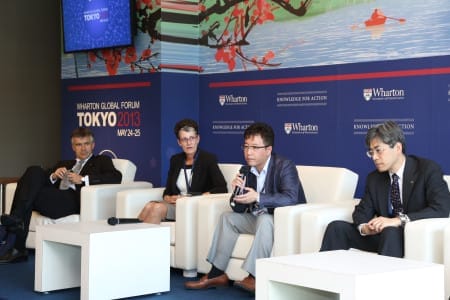Building a Knowledge Supply Chain
Blending Wharton classroom concepts with international immersion, Wharton Global Modular courses expose students to new experiences—from Versace’s Milan headquarters in Italy to behind the wheel of a Nissan on a test track in Japan.
“During a Global Modular Course, we’re not watching a video, we’re not reading a case—we’re actually talking to the managers in depth and touring their facilities,” says Morris Cohen, Wharton’s Panasonic Professor of Manufacturing and Logistics. “We put these elements together in an appropriate context, ensuring that the course isn’t just a range of visits, but a cohesive learning experience.”
Cohen taught the new, six-day course “Global Operations (Supply Chain) Management in Japan” with John Paul MacDuffie, an associate professor in the Management Department.
The class kicked off this past May during the Wharton Global Forum Tokyo, where students engaged with hundreds of business executives and Wharton alumni, attended the Forum’s keynotes and master classes, and participated in a private panel featuring leaders from Boeing and Mitsubishi Heavy Industries. The integration of Forum content into the course exposed students to insights from panelists in a range of industries and functions. After the Forum, students visited Nissan’s Oppama plant and its Global Production Engineering Center, Tokyo Electron and Fujitsu Isotec.
Junichi Endo, WG’93, who served as a member of the organizing committee for the Wharton Global Forum Tokyo, was one alumnus who became deeply involved with the course, helping organize site visits, connect Forum content to course content and even writing a position paper on Nissan’s global supply chain management as a supplement for students to read before their visits.
While Endo believes that Wharton’s commitment to admitting a diverse student body is a great accomplishment, he also notes that this is not enough to truly provide students with a global perspective. That is why each Global Modular Course is so valuable—and why alumni participation is important.
“By leveraging the alumni network in the local community, we buttress the School to access great speakers of high relevance for the course in each community,” he says.
—Susan McDonnell
Editor’s note: This is an excerpt of a Wharton Blog Network post. Read the full article at: www.whartonmagazine.com/blogs/knowledge-supply-chain.

























